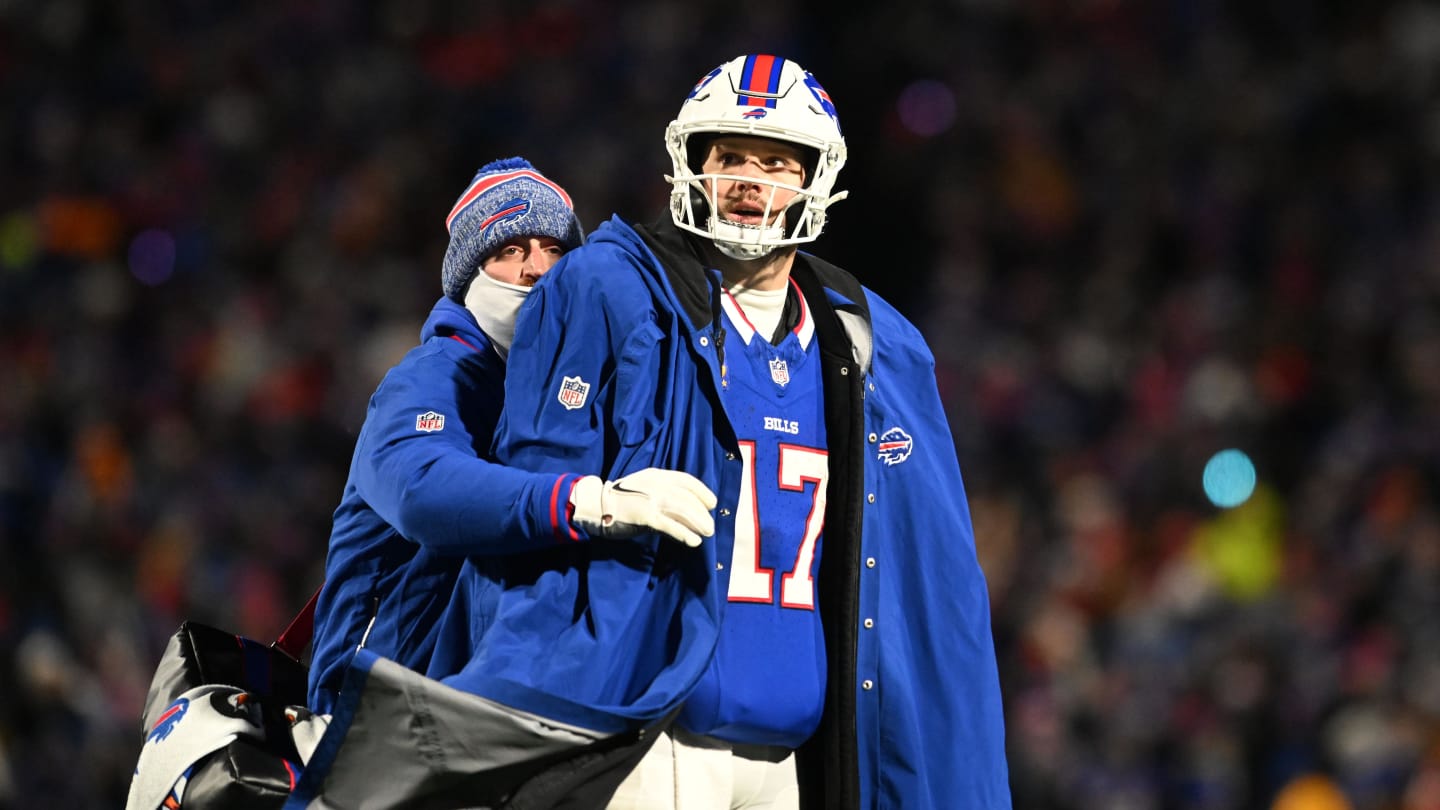


It’s often beneficial, in all walks of life, to take a step back and reassess your process—if you’re not getting the results you want in any particular endeavor, it’s paramount to identify why you’re coming up short and fix your mistakes or shortcomings before again moving forward. The Buffalo Bills did just that in the 2024 offseason; a team that’s continuously gone ‘all-in’ in recent NFL seasons, Buffalo took a step back this spring, moving on from stalwart starters across the roster in an attempt to get younger throughout the lineup and free up long-term financial flexibility.
The moves leave Buffalo with a younger, more inexperienced, and generally weaker roster than it’s had in past years—this isn’t to say the team isn’t talented or capable of finding success in the 2024 campaign, there are objectively more question marks entering the 2024 season than there have been in recent years. CBS Sports writer Shanna McCarriston seemingly agrees with this sentiment; in a recent article looking at “which NFL teams will exceed and which will fail to meet expectations in 2024,” the analyst wrote that the Bills will disappoint in the upcoming season.
“Some may look at the Bills as a successful team because yes, at a glance, a team that gets to the playoffs and wins divisional titles is a successful team,” McCarriston wrote. “For me, they are one of the most disappointing teams in the league, because their ceiling is so much higher than where they are reaching. Making one conference championship in the Josh Allen Era is the definition of underperforming and while it is a difficult road through the Chiefs, it has been a history of small mistakes and unpreparedness that resulted in those losses.
Related: Another Category Where Bills’ QB Josh Allen Tops NFL
“Do I think the Bills will be a playoff team next year? Absolutely, but I do not believe they will meet the high expectations that are set for them for as long as Allen is running the offense. With a salary cap to address, they lost a lot of key players and there will be an adjustment period as they look to replace holes left on all sides of the ball.”
McCarriston also notes the strength of the AFC East—namely the ability of the Miami Dolphins and the potential ceiling of the Aaron Rodgers-led New York Jets—as reasons why Buffalo may underwhelm next season.
McCarriston writes that the Bills’ ceiling is “so much higher than where they are reaching,” which may be shortsighted and generally unfair analysis. Buffalo, indeed, parted ways with Gabriel Davis and perennial Pro Bowler Stefon Diggs—its two most significant aerial contributors in recent years—in the offseason, but in doing so freed up long-term financial wiggle room. Davis, though talented, is a generally limited wide receiver who never took the step in his development that Buffalo’s brass was anticipating—attributing $13 million to him annually likely wouldn’t have been a wise long-term decision. In trading Diggs, the Bills removed the final three years of his roughly $25 million AAV deal from their books; the departure of Davis and Diggs prompts immediate questions but secures long-term flexibility and options.
It’s also not as though the Bills haven’t given Allen anything to work with in the 2024 season. Wide receiver Khalil Shakir and tight end Dalton Kincaid, who both flashed down the stretch of the 2023 season, will return in the upcoming campaign and figure to prominently factor into the passing attack. The team also selected talented pass catcher Keon Coleman in the second round of the 2024 NFL Draft and signed Curtis Samuel, who has succeeded under Buffalo offensive coordinator Joe Brady in the past, in free agency; the Bills’ receiving corps is no longer headlined by marquee names, but there’s objectively talent and depth throughout the unit.
Related: Intriguing Bills OT on expiring deal dubbed a player with a ‘contract worth watching’
Buffalo also returns eight of 11 starters defensively, with two of the three available starting roles figured to be filled by players who were with the club last season. With either head coach Sean McDermott or new defensive coordinator Bobby Babich—who has been with the organization for seven years—calling the plays, there’s little reason to have overwhelming concerns about the unit entering the new campaign.
To imply that the Bills aren’t ‘reaching high enough’ is to ignore the team’s entire offseason strategy—every decision Buffalo made, every move it executed, was made because it realizes it has underachieved in recent years. It realizes that bowing out after one or two postseason wins isn’t good enough, and thus, it took a step back, got younger, and better positioned itself for sustained long-term success. The team is generally younger and no longer has significant financial commitment tied to aging players, an objectively advantageous position for a team centered around a 28-year-old franchise quarterback to be in.
Could this result in an immediate stepback? Perhaps, but the team is still strong; as McCarriston writes, they’ll likely be a playoff team next season. The Bills will likely deem the 2024 season a success if they’re as competitive as they’ve been in recent years while simultaneously seeing promise and development from its new core—if some pundits deem a season such as this “a disappointment,” perhaps their expectations are misplaced.
— Enjoy free coverage of the Bills from Buffalo Bills on SI —